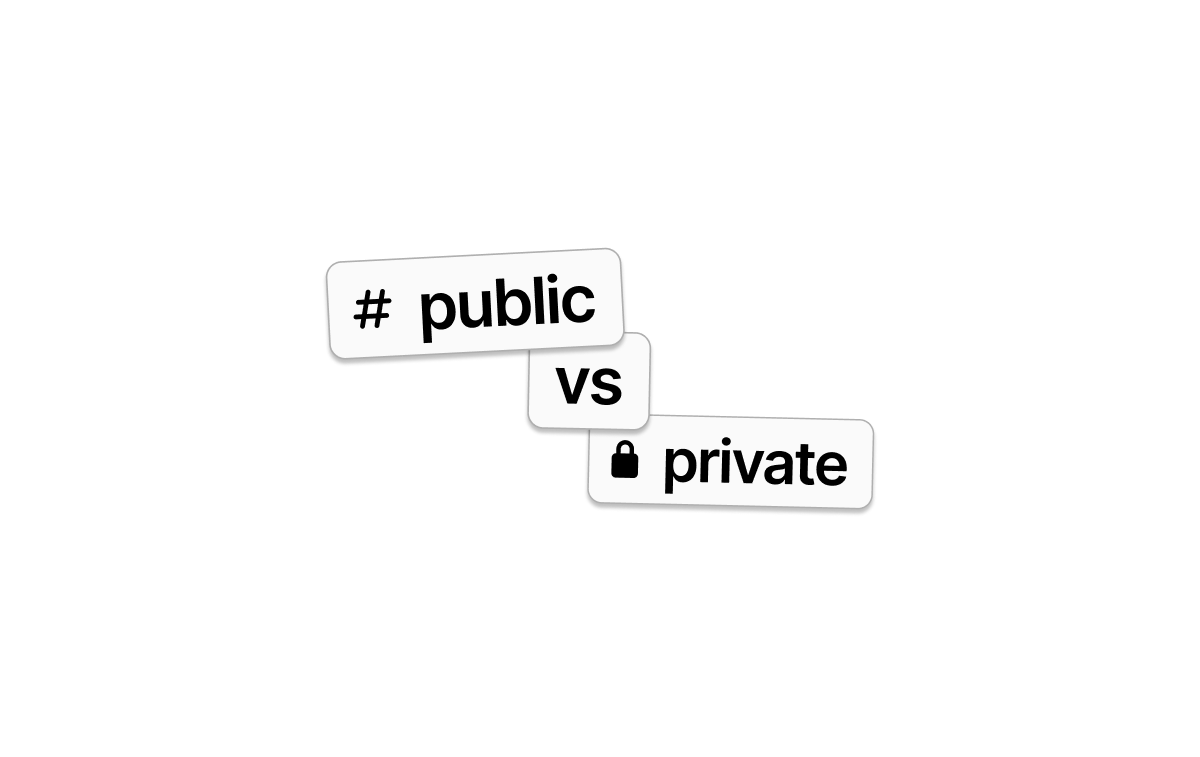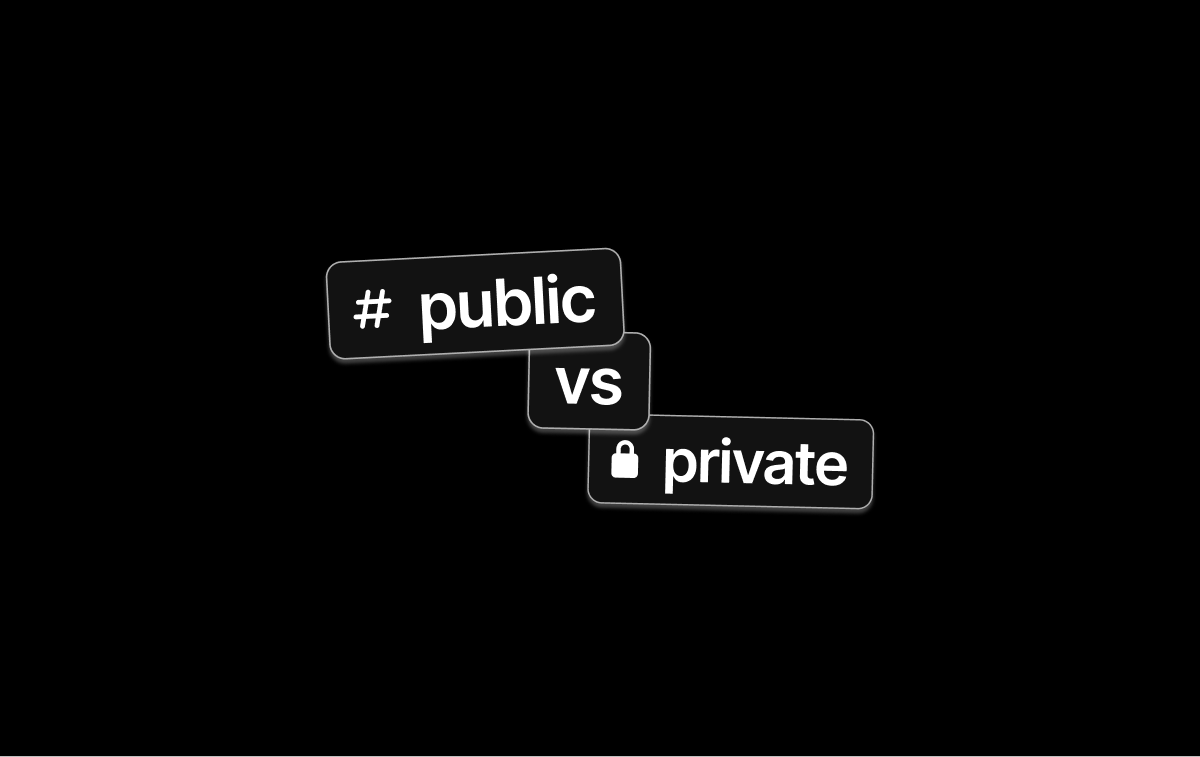

#ask-it, or a private message to avoid feeling exposed?
The answer is both. Each approach has real benefits, and forcing teams to pick one creates unnecessary friction. This guide walks through when each works best and how Ravenna lets you support both without adding complexity.
Public channels: Transparency by default
Public Slack channels are the traditional home for internal support:#ask-it#help-people#feedback-product#support-eng
Benefits of public channels
Benefits of public channels
- Shared context - Everyone sees questions and answers, reducing repeat requests
- Visible workload - Teams can see support volume and balance the load
- Searchable knowledge - Past conversations become self-service documentation
- Controlled interruptions - Responders reply when ready instead of being pinged directly
Challenges with public channels
Challenges with public channels
- Hesitation to post - Some people avoid asking what they see as basic questions publicly
- Channel noise - Busy channels can feel overwhelming without clear structure
- Unclear ownership - Without triage, messages can go unanswered
Private DMs: Lower barrier to entry
Private requests in Ravenna go to the Ravenna bot, not to an individual’s personal DMs. To the requester, it feels like a simple one-on-one conversation. For support teams, it keeps personal inboxes clear and routes all requests into your .Benefits of private requests
Benefits of private requests
- Easy to start - Messaging a bot feels as simple as messaging a person
- Safe for sensitive issues - Great for HR questions, access requests, or awkward problems
- Protected inboxes - Agents aren’t interrupted in personal DMs—requests appear in
- Still trackable - Private conversations flow into the same system as public ones
Challenges with private requests
Challenges with private requests
- Limited visibility - The wider team can’t learn from private exchanges
- Risk of being missed - Without proper routing, private messages can slip through
- False expectations - Some people assume private means instant attention
How AI agents help with both
Ravenna’s monitor both public and private DMs, triaging requests automatically regardless of where they originate. This speeds up support for everyone. For requesters:- Instant acknowledgment and initial triage in both public and private
- Faster routing to the right person or team
- Immediate answers to common questions without waiting for a human
- Requests arrive pre-categorized and prioritized
- AI handles routine questions in both channels and DMs
- Clear handoff when human help is needed
- 24/7 coverage across all entry points
How Ravenna supports both approaches
You don’t have to force your team into one model. Ravenna makes both work smoothly.In public channels
- Turn any message into a tracked request with a or
- Ravenna creates a thread and manages it as a structured ticket
- Multiple responders can collaborate without cluttering the channel
- Requesters get automatic updates as work progresses
In private DMs
- Teammates message the Ravenna bot directly for private requests
- Sensitive issues stay private but are still tracked in your workspace
- Support teams manage all requests from one place, whether they started in a channel or a DM
Ravenna adapts to how your team already works, whether that’s public by default, private when needed, or a mix of both.
Recommendation: Default to public, allow private
Use public channels as your default for transparency, knowledge sharing, and balanced support. But give people a clear path to private requests when privacy or comfort matters. With Ravenna, you can support both approaches without losing visibility, dropping requests, or overloading your team. AI agents handle the heavy lifting of triage and routing, so both paths work efficiently.Learn more about setting up your first channel

